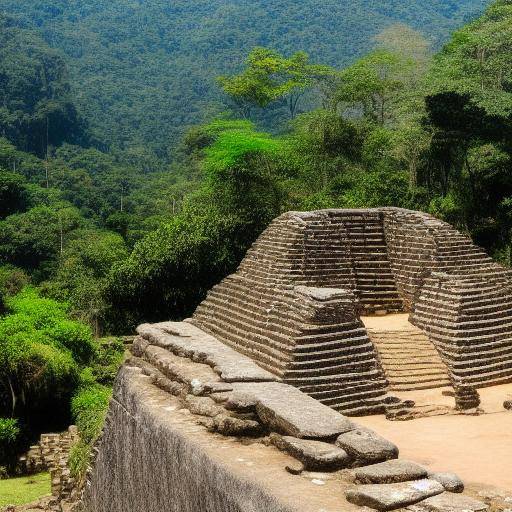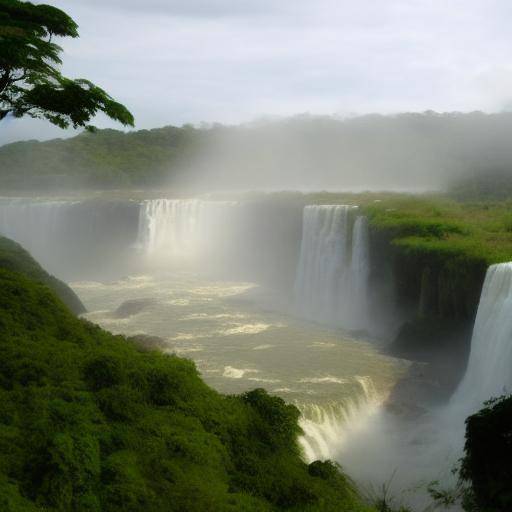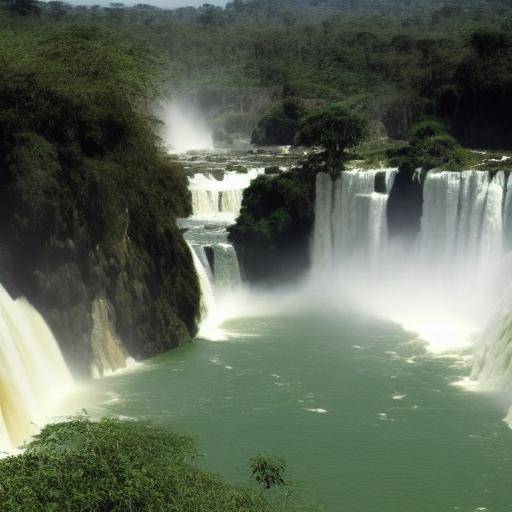
The lost city of Great Zimbabwe is an archaeological site of great importance in Africa, famous for its stone ruins that reveal the greatness of an ancient civilization. In this article, we will explore history, cultural relevance, and how you can visit this fascinating place. We will also discuss the importance of archaeology in Zimbabwe and the African continent in general. Prepare to discover the majesty of Great Zimbabwe and immerse yourself in Africa's rich heritage!
Introduction
The lost city of Great Zimbabwe is an archaeological treasure located in the southeast of Zimbabwe. This vast ruin complex, declared a World Heritage Site by UNESCO, offers a unique window to the past grandeur of Africa. In this article, we will give you a deep understanding of Great Zimbabwe, from its origins to its importance today. In addition, we will guide you on how to plan a trip to experience in person the fascinating history that this place has to offer.
History and Background
The ruins of Great Zimbabwe represent the capital of an ancient African empire that flourished between the 11th and 15th centuries. This settlement was in its peak a center of commerce, politics and culture, controlling trade routes and exerting influence on surrounding regions. The unique architecture of the ruins, especially the Great Enclosure and the Great Wall, bears witness to the architectural skill and power of this civilization.
The historic importance of Great Zimbabwe lies in its role as a tangible testament to the precolonial African grandeur. The ruins detract from the misperception that Africa lacks significant history and heritage, thus challenging Eurocentric conceptions. Great Zimbabwe ' s cultural and political resonance has also inspired African empowerment movements and played a crucial role in building Zimbabwe ' s national identity.
Analysis in Deep
The importance of preserving and studying Great Zimbabwe lies in its potential to foster cultural pride and historical understanding both locally and globally. However, the management and conservation of the site faces challenges, from archaeological looting to preservation against erosion and urban growth. A delicate balance between the opening of the site to tourism and its long-term protection is required.
Comprehensive review
The value of Great Zimbabwe transcends the purely archaeological. It serves as a catalyst for sustainable tourism, generating income and employment for local communities. It also offers opportunities for multidisciplinary research that sheds light on precolonial African history and challenges prevailing colonial narratives.
Comparative analysis
The connections between Great Zimbabwe, Zimbabwe and African archaeology underscore the interrelationship of history, identity and development on the continent. The history of the lost city reflects cultural wealth and African resistance, as well as providing a framework for understanding the present and future of Zimbabwe and the continent as a whole.
Practical Tips and Accessible Recommendations
If you are planning a visit to Great Zimbabwe, it is crucial to respect the site and its environment. When making tourism at the site, consider hiring local tourist guides that can provide significant cultural and archaeological information. It also supports local communities by buying traditional crafts and locally grown foods. Take measures to minimize your environmental footprint and preserve the integrity of the site for future generations.
Industry Perspectives and Expert Reviews
African archaeology experts underscore the importance of preserving and studying sites such as Great Zimbabwe as a way of restoring unbalanced historical narratives and empowering local communities. Their critical research and analysis shed light on the lasting impact of antiga civilization, reporting conservation and sustainable development policies.
Case Studies and Real Life Applications
The impact of Great Zimbabwe goes beyond its ruins. Community development projects, educational programmes and site-based cultural festivals are fostering local empowerment and the promotion of African heritage. These efforts demonstrate how the preservation of archaeological heritage can catalyse a positive change in the surrounding communities.
Future Trends and Predictions
The future of Great Zimbabwe and African archaeology is linked to greater recognition of the importance of empowering local communities in heritage conservation and management. Greater focus is expected on sustainable development and international cooperation to protect global historical monuments and promote a more equitable historical narrative.
Conclusions
The beauty and cultural significance of Great Zimbabwe make it an indispensable destination for lovers of history and archaeology. Whether you plan to visit the site in person or want to learn more about its importance, the lost city offers a unique opportunity to explore and appreciate the amazing African heritage. The preservation of these treasures of the past is vital to our global understanding and the promotion of cultural diversity.
Frequently asked questions
What is the importance of Great Zimbabwe in African history?
Great Zimbabwe represents a tangible proof of the greatness and sophistication of pre-colonial African civilizations. Its preservation helps challenge historical Eurocentric narratives and nurture African cultural pride.
What are the current challenges facing Great Zimbabwe?
The site faces threats such as archaeological looting, erosion, unregulated development and tourism pressure. Sustainable management is crucial to ensuring its long-term preservation.
Why is it important to support local communities when visiting Great Zimbabwe?
By supporting local communities through sustainable tourism, economic development is fostered and cultural heritage preservation is promoted. This helps ensure that the site can be enjoyed by future generations.
What is the impact of African archaeology on the global understanding of history?
African archaeology plays a key role in challenging biased historical perceptions and in providing a more complete and equitable look at human history. Their discoveries enrich our understanding of past cultural diversity and civilizations.
How can we contribute to the preservation of Great Zimbabwe from abroad?
Apart from visiting the site responsibly, donations can be made to organizations dedicated to archaeological conservation in Zimbabwe. Awareness of the importance of protecting African heritage between friends and social networks can also be disseminated.
What is the best time of the year to visit Great Zimbabwe?
The best time to visit Great Zimbabwe is during the dry months between May and September. During this period, not only the rainy season is avoided, but you can also enjoy green and lush landscapes.
In short, the visit to the lost city of Great Zimbabwe and the understanding of its importance in African archaeology offer an enriching experience that transcends time and space. By protecting and supporting our cultural heritage, we contribute to the preservation of an invaluable legacy for generations to come. Discover the wonders of Great Zimbabwe and join us in the adventure of rediscovering the past of Africa!





